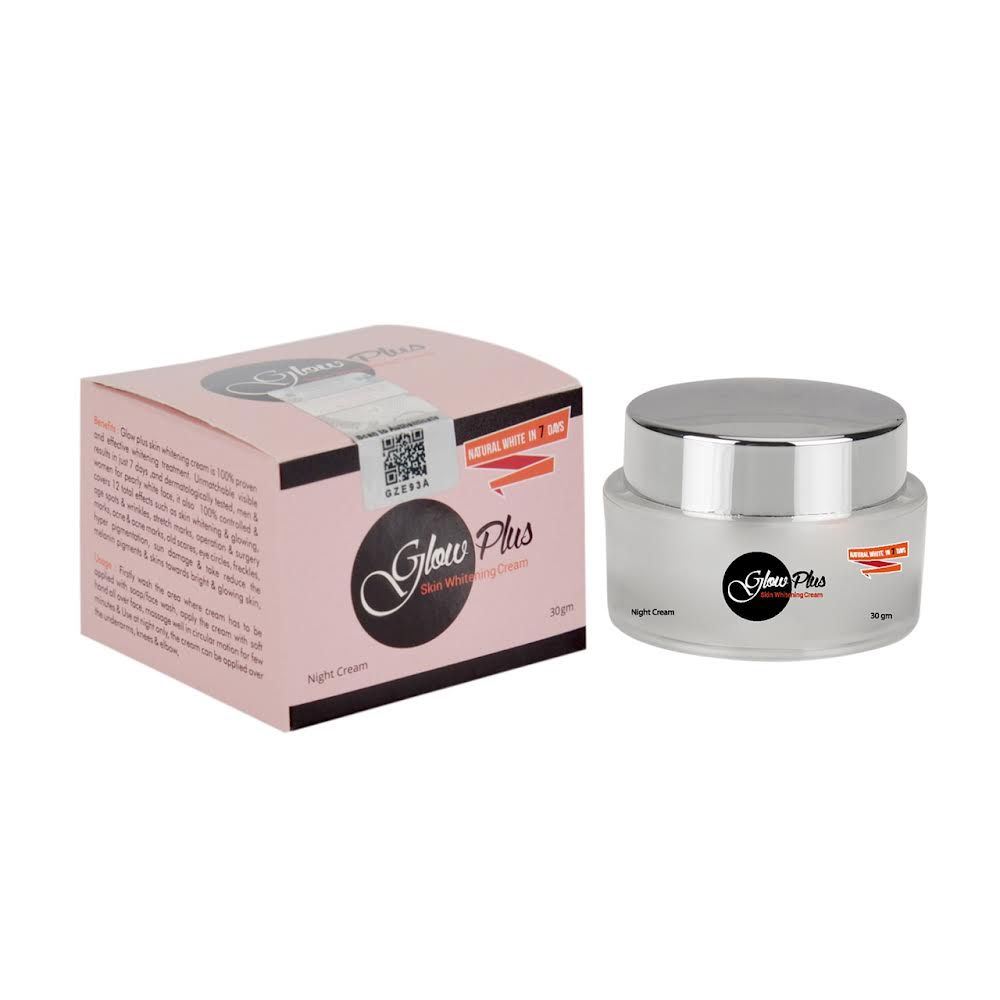- Get link
- X
- Other Apps
In a world where skincare is becoming increasingly personalized and ingredients more sophisticated, many people are turning to specialized creams to achieve brighter, more even-toned skin. One product gaining popularity in this space is Glow Plus Skin Whitening Cream. Marketed for its skin-brightening properties and powerful blend of ingredients, this cream has sparked conversations—especially around its effectiveness and safety.
So, the question remains: Is Glow Plus Cream safe for all skin types? Let’s dive deep into the science, ingredients (including glutathione), and what dermatologists have to say about using this cream on different skin types.

Understanding Glow Plus Skin Whitening Cream
Before evaluating its safety, it’s essential to understand what Glow Plus Glutathione Skin Whitening Cream actually is.
This cream is formulated to:
- Brighten the complexion
- Reduce dark spots and pigmentation
- Lighten acne scars and blemishes
- Provide a more even skin tone
Many users are drawn to this product because it promises noticeable changes in a short period. It’s often marketed to people dealing with uneven skin tone, sun tan, and hyperpigmentation.
But as with any product that alters the skin’s tone or texture, understanding how it works and what it contains is vital.
Key Ingredients: The Role of Glutathione
One of the star ingredients often found in skin-brightening formulations is glutathione. Known as the “master antioxidant,” glutathione is naturally produced in the body and plays a key role in reducing oxidative stress and detoxifying cells.
When used in skincare, glutathione is believed to:
- Inhibit melanin production
- Lighten pigmentation
- Neutralize harmful free radicals that cause skin damage
While oral supplements of glutathione have been extensively researched, topical application is still an evolving area. However, when included in well-formulated products like Glow Plus Skin Whitening Cream, it can offer mild skin-brightening benefits without the harsh side effects of ingredients like hydroquinone.
Is It Safe for All Skin Types?
Now, let’s tackle the core question. While Glow Plus Skin Whitening Cream is designed to suit a wide range of users, its safety across all skin types depends on a few key factors.
1. Oily and Acne-Prone Skin
If you have oily or acne-prone skin, be cautious. Some formulations of whitening creams contain heavy emollients or comedogenic ingredients that may clog pores and worsen acne.
Dermatologist Insight: Always check if the cream is labeled “non-comedogenic.” If your skin tends to break out, do a patch test before applying the cream all over your face. Products with glutathione tend to be safe but monitor for other pore-clogging ingredients like mineral oil.
2. Dry and Sensitive Skin
Glow Plus Cream may offer hydration due to the presence of emollients and soothing agents. However, some users with sensitive skin report mild tingling or irritation, especially if the product contains strong fragrance or preservatives.
Dermatologist Insight: For sensitive skin types, it’s recommended to use the cream only at night and follow it up with a gentle moisturizer. Always do a patch test on your inner wrist or behind your ear.
3. Combination Skin
Those with combination skin generally tolerate products like Glow Plus Glutathione Skin Whitening Cream well. The key is balancing its use—applying it only to affected areas such as pigmentation zones rather than the entire face.
Dermatologist Insight: Use the cream sparingly and monitor for any dry patches or oil build-up.
4. Normal Skin
If you have normal skin that isn’t particularly reactive or dry, you’re in the best position to use Glow Plus Cream without major issues. Just be sure to use sunscreen during the day, as many brightening creams make your skin more sensitive to UV rays.
Important Tips for Safe Use
Regardless of your skin type, here are some universal guidelines for using Glow Plus Skin Whitening Cream safely:
- Patch Test First: Apply a small amount of the cream on your jawline or forearm for 24 hours to check for any allergic reaction.
- Use Sunscreen Daily: Brightening agents can make your skin more vulnerable to sun damage. SPF 30 or higher is a must.
- Don’t Mix with Harsh Actives: Avoid using this cream along with strong AHAs, BHAs, or retinoids unless directed by a dermatologist.
- Avoid Overuse: Using more products doesn’t mean faster results—it could lead to irritation. Follow the recommended usage instructions.
- Consult a Dermatologist: If you have pre-existing skin conditions like eczema, rosacea, or psoriasis, speak with a skin expert before starting any whitening cream.
Are There Any Side Effects?
Most users report no serious side effects when using Glow Plus Cream responsibly. However, potential side effects (especially from improper use) may include:
- Mild irritation or burning
- Redness or itching
- Photosensitivity (increased sun sensitivity)
These are typically rare and more likely when the cream is overused or applied without sun protection.
Does It Really Work?
The effectiveness of Glow Plus Skin Whitening Cream largely depends on individual skin types and concerns. The inclusion of ingredients like glutathione can offer gradual lightening of dark spots and an overall brighter appearance over time.
But remember—“whitening” doesn’t mean changing your natural skin tone. Instead, the cream works by reducing melanin overproduction, which helps even out skin tone and fades discoloration.
Final Verdict: Safe When Used Correctly
To answer the original question—yes, Glow Plus Skin Whitening Cream can be safe for all skin types, provided it’s used correctly and with care. Its inclusion of antioxidants like glutathione gives it a scientific edge, making it more than just a cosmetic product.
However, as with any skincare product, results can vary. What works wonders for one person may cause mild irritation in another. That's why a mindful approach, regular patch testing, and dermatologist guidance are key to achieving your skincare goals safely.
- Get link
- X
- Other Apps
Comments
Post a Comment